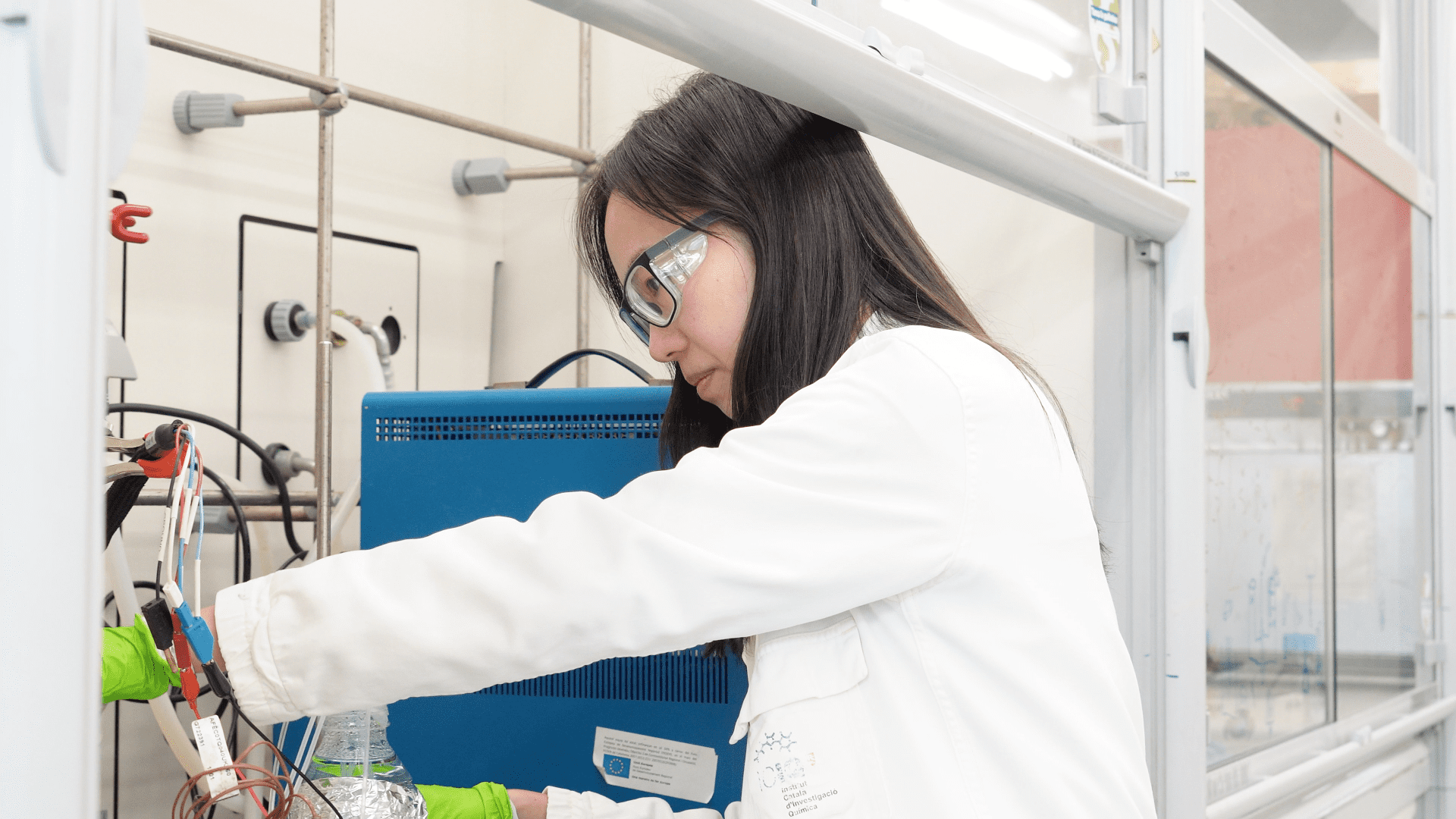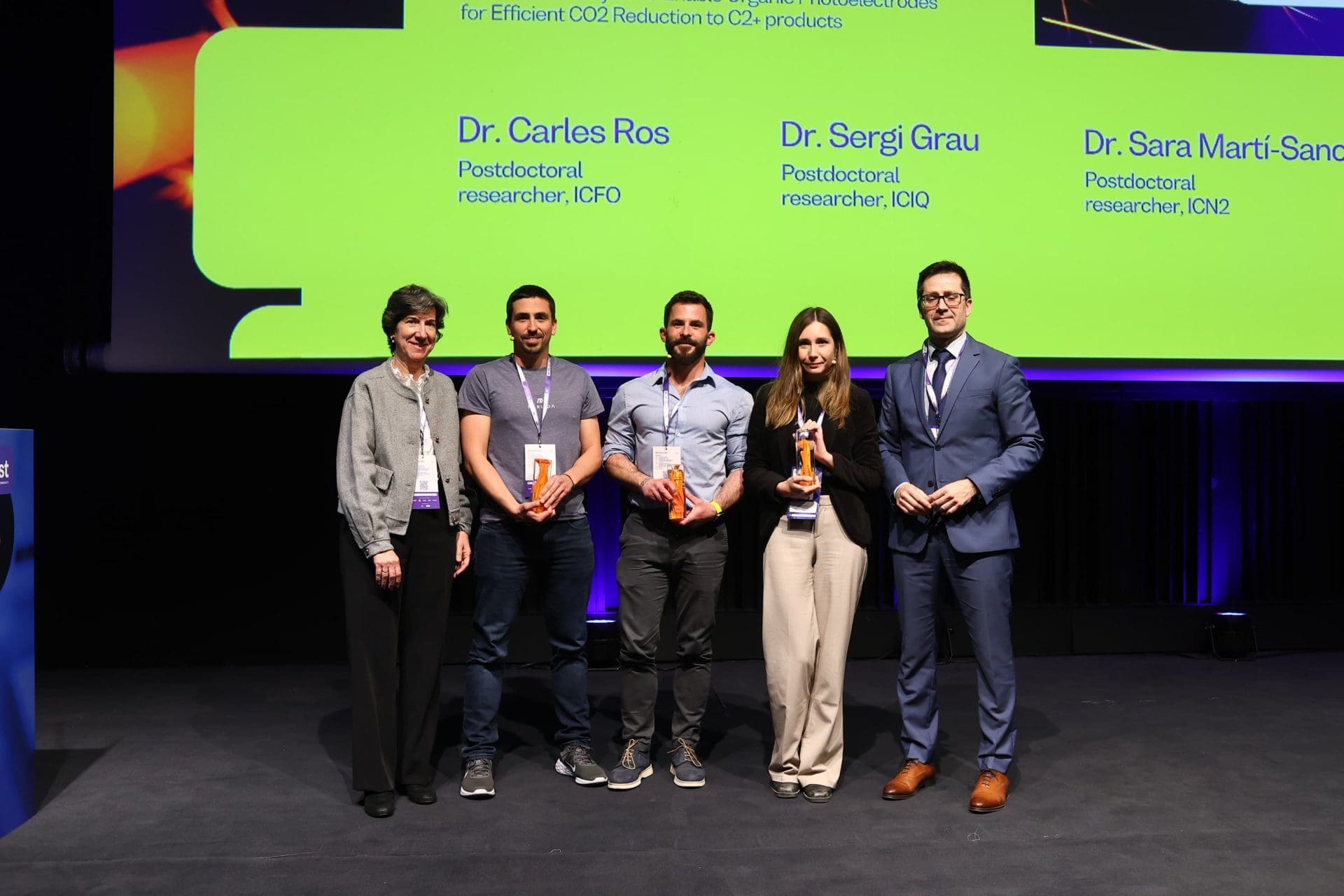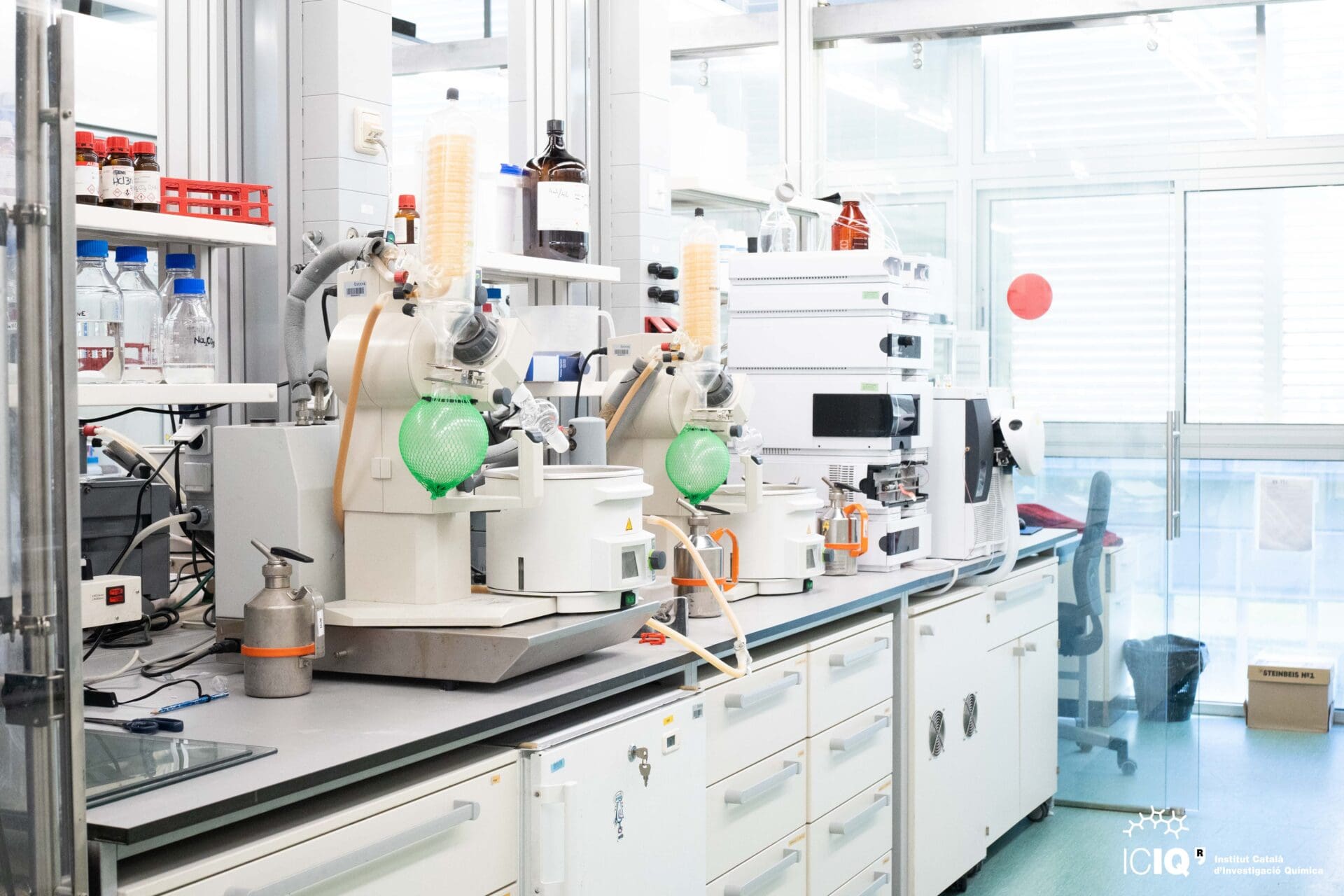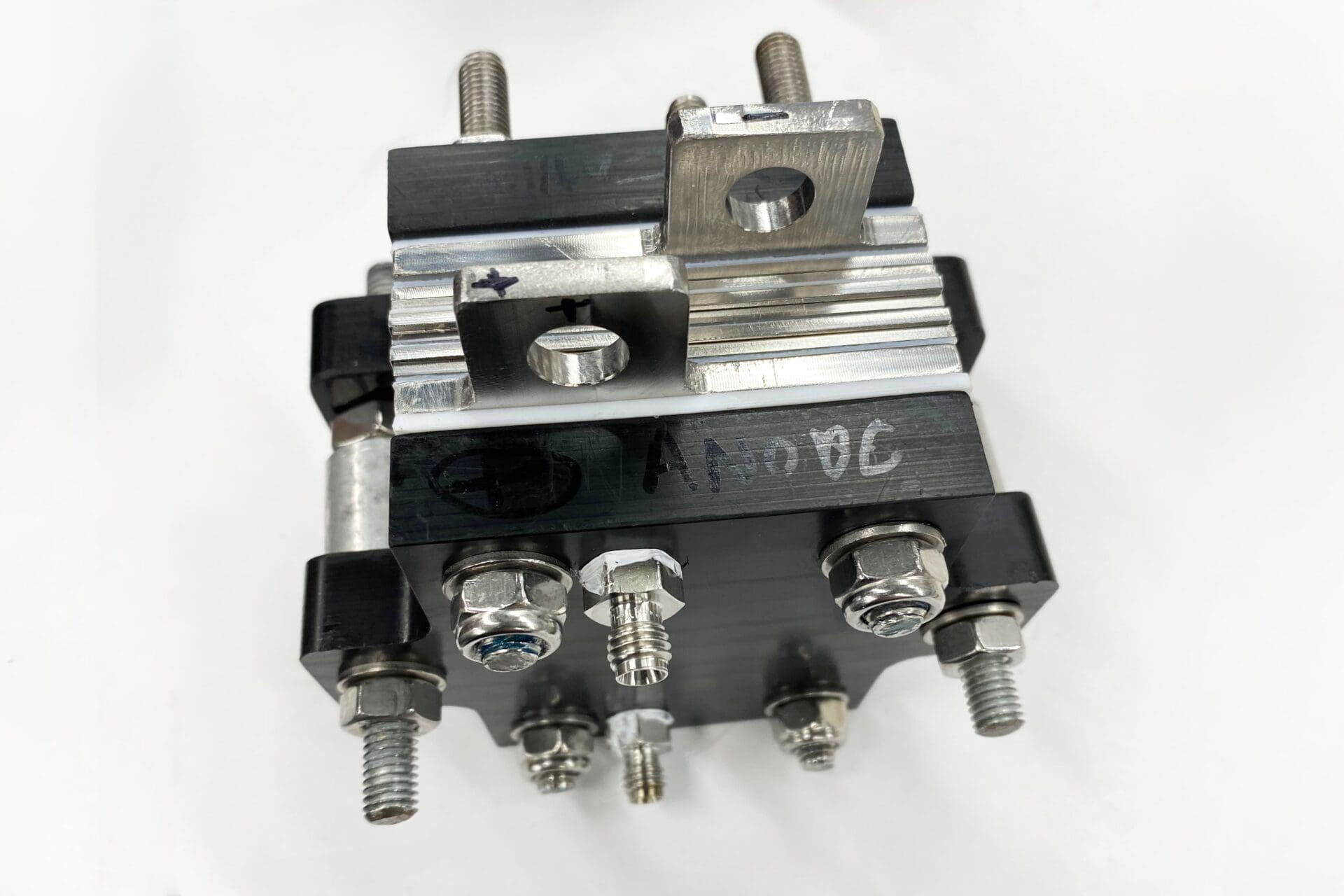Cobalt and tungsten – together to produce cheaper, cleaner hydrogen
30th octubre 2017 -
Prof. José Ramón Galán Mascarós’ group, together with URV researchers,
publish a novel water oxidation catalyst in Nature Chemistry
Electrolysis, splitting the water molecule with electricity, is the cleanest way to obtain hydrogen, a clean and renewable fuel. Now, researchers at ICIQ and URV, led by Prof. José Ramón Galán-Mascarós, designed a new catalyst that reduces the cost of electrolytic hydrogen production.
‘Normally, hydrogen is obtained from using a cheap process called steam reforming. But this is not clean hydrogen, this process uses natural gas and produces carbon dioxide and other contaminants,’ explains Galán-Mascarós. ‘Breaking the water molecule is cleaner, but it’s not easy. We need to develop new cheap, efficient catalysts that allow us to obtain hydrogen at a competitive price,’ he says. To date, the best catalysts are based in iridium oxides, but iridium is a very expensive and scarce precious metal.
Chemists at ICIQ and URV discovered a cobalt–tungsten polyoxometalate that can catalyse water splitting better than iridium oxide. ‘Polyoxometalates are nanometric molecular oxides that combine the best of two worlds, the great activity of oxides and the versatility of molecules,’ explains Marta Blasco-Ahicart, postdoctoral researcher at ICIQ. ‘Our polyoxometalates are way cheaper than iridium and allow us to work in acidic media, the optimal media to generate oxygen that is normally a drawback for catalysts, which are usually consumed by the acid,’ clarifies Blasco-Ahicart.
Joaquín Soriano, currently a postdoctoral researcher at Trinity College in Dublin, explains that ‘our catalysts work specially well when we work with low voltajes.’ ‘That may seem an issue’ –he explains– ‘but is rather an advantage, it saves electricity and will allow us, soon, to obtain the energy required for water splitting from renewable sources like solar panels.’
Moreover, researchers present in their paper an additional discovery. Supporting the catalysts in a partially hydrophobic material, the efficiency of the process improves. This generates a ‘waterproof’ reactor where electrolysis advances quicker, and also enhances the lifetime of catalysts. The new methodology not only improves the performance of the new cobalt-tungsten polyoxometalates, but also with a lot of different catalytic systems. Nowadays, researchers are investigating new ways of taking advantage of this new finding, developing new hydrophobic scaffolds to further boost the efficiency of water splitting, a fundamental step towards the evolution of artificial photosynthesis.
Polyoxometalate electrocatalysis based on earth-abundant metals for efficient water oxidation in acidic media.
Blasco-Ahicart, J. Soriano-López, J.J. Carbó, J.M. Poblet, J.R. Galán-Mascarós.
Nat. Chem., 2017, DOI: 10.1038/nchem.2874.
Noticias relacionadas

Creemos un futuro más brillante
Únete a nuestro equipo para trabajar con investigadores de renombre, emprender proyectos innovadores y contribuir a avances científicos significativos.
Únete a nosotros!





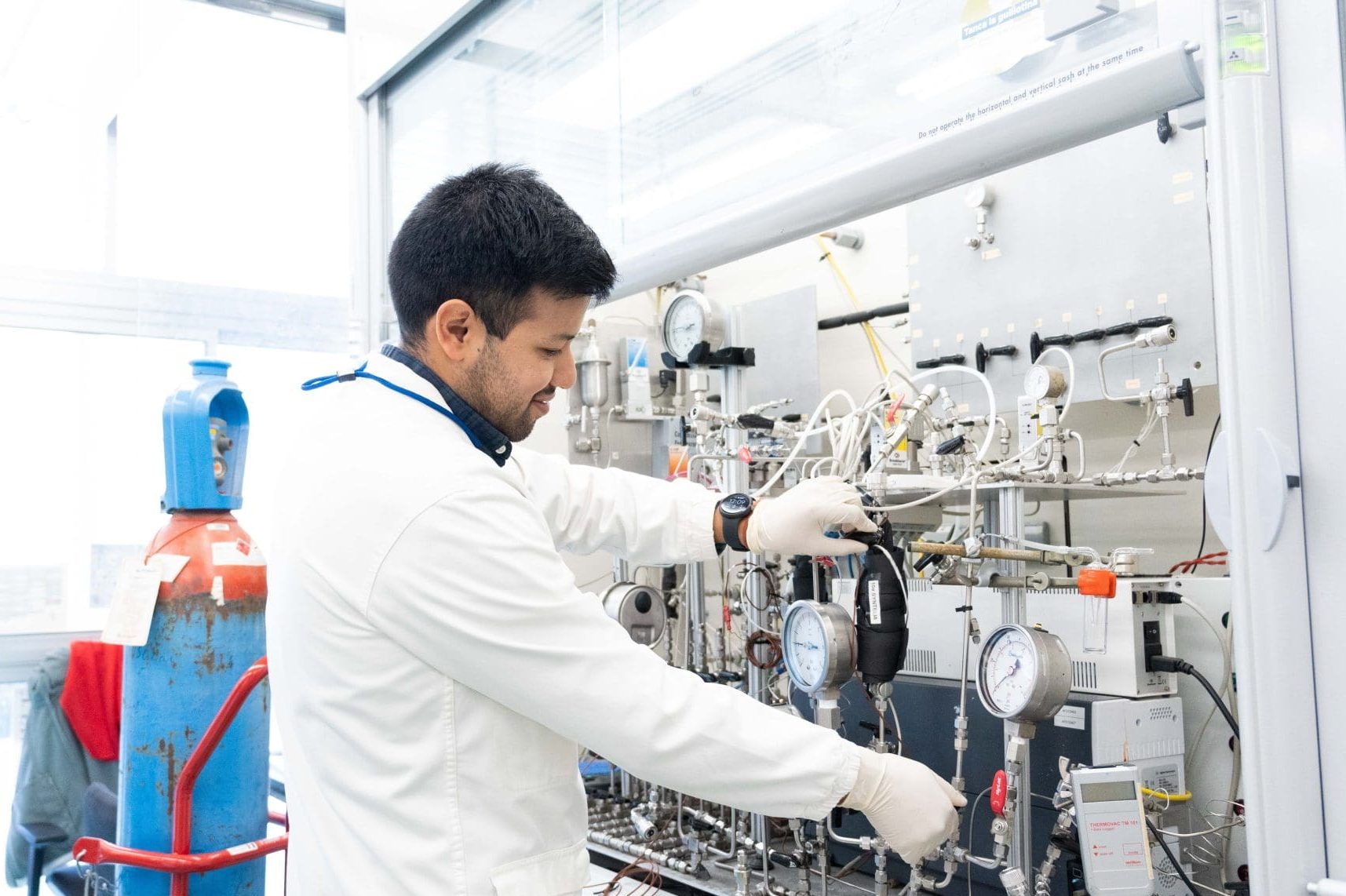
 15-04-2025
15-04-2025 